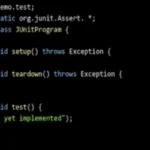Game Porting: Unlocking Market Access for Indie Developers
In indie space, building an actual game is only half the battle. The other half? Getting people to actually play it.
It’s a harsh reality, though. You might spend years building a stunning, pixel-perfect world only to watch it drown in a sea of other releases. There’s a great strategy that can help with that — game porting. And that’s where a game porting studio can help.
No, we’re not talking about multi-million-dollar AAA reboots. We’re talking about smart adaptations of your existing game to new platforms. All done in a way that boosts your visibility, expands your audience, and extends your game’s shelf life.
Let’s discuss what exactly makes game porting great for indie developers.
Market Reach Matters More Than Ever
Indie devs don’t have the luxury of massive AAA budgets or a globally recognized IP. Most are relegated to grassroots marketing, niche communities, and pure word-of-mouth magic.
Even if your game is great, though — critically acclaimed, popular with streamers, featured on “hidden gems” listings — it can only go so far if it’s confined to one platform.
Suppose you launch a PC-only game on Steam. Great, but that also leaves you out of:
- console players who play on Switch or PlayStation;
- mobile players browsing the App Store during their morning commute;
- cloud platform users gaming on smart TVs or Chromebooks.
Porting game studios like N-iX Games can help indie games break free from their constraints. It’s a way to meet players where they’re already at. That might just become the difference between cult favorite and crossover phenomenon.
Game Porting, Indie-Style: Explained
Just what is game porting, exactly? In short, it’s the process of adapting your game to run on a different platform than the one it was originally designed for. You’re not reinventing the wheel — you’re just adjusting it to roll on different terrain.
Many indie games are made for PC or mobile. That’s generally the path of least resistance. If the game picks up an audience, though, developers can look at bringing it to consoles.
With game engines like Unity, Unreal, and Godot, porting is simpler than ever. These engines have cross-platform deployment right out of the box. You don’t have to start from scratch when you’re ready to expand.
Porting Success Stories from the Indie World
Want proof that porting is a success? Take a look at some of the most popular indie games of the past decade.
Stardew Valley
What started as a PC farming simulation evolved into a multi-platform phenomenon. Once it landed on Switch and mobile, a whole new fan base fell in love with the game — and made it a cultural touchstone in the process.
Hollow Knight
This haunting Metroidvania stormed a devoted PC fanbase. But when it landed on console, specifically Nintendo Switch, its popularity went through the roof. Porting from indie darling to mainstream must-play.
Dead Cells
The frantic roguelike launched on PC, but went on to become a huge hit on consoles and even smartphones. The developers didn’t just expand their market audience — they extended the game’s lifespan by years.
Each of these stories demonstrates the same thing: a good game is worth more than one release. With the help of a studio that specializes in game porting, like N-iX Games, a dream becomes a reality.
Top Benefits of Game Porting for Indie Developers
Ready to take porting seriously? Here’s what’s in it for you:
1. Reach New Audiences
Different platforms attract different crowds. Switch gamers love indie games on the go. Console gamers love to play on the couch with a controller. Mobile gamers want pick-up-and-play experiences. Porting lets you access all of them.
2. Unlock More Revenue Streams
Multiple platforms equate to multiple storefronts — and that equates to more chances to sell your game. From Steam and Epic to Nintendo eShop and Xbox Live, every new release is an opportunity.
3. Extend Your Game’s Lifespan
Porting is a second wind. Maybe your game didn’t go big on PC — but when it releases on Switch, it’s hot all over again. Every new platform is a shot at viral success.
4. Increase Your Marketing Exposure
Every port is a mini re-launch. You can generate buzz, re-approach press outlets, and get players to want to check out your game (or check it out again).
5. Improve and Build Up the Game
When porting, you’re often asked to optimize code, adjust UI, or improve performance. These changes can cut back into the original version, giving all players a better experience.
Potential Challenges
Of course, it’s not all rainbows and five-star ratings. Porting might present problems, specifically for small teams.
Constrained Resources
Time and budgets are lean. You might not have in-house dev kits for consoles or the expertise to debug controller mapping issues.
Technical Variability
Hardware, input systems, screen sizes, and performance specifications vary, so bugs are inevitable. Porting is never plug-and-play.
Certification and Publishing
Console platforms are well-regulated with rigorous approval and qualification procedures. Paperwork and compliance testing are sufficient to stop you dead in your tracks.
Porting Tips for Indie Devs
The good news is you don’t have to do it all by yourself. Independent developers often collaborate with:
- Porting studios that specialize in porting games fast and efficiently.
- Publisher partners that can take care of console relationships, marketing, and testing.
- Toolkits and plugins that make the cross-platform experience simple (Unity and Unreal are riddled with them).
And most importantly, you’ve got an international community of like-minded developers who’ve already done the journey. They share their knowledge online every day.
If you’re up for it, here are some helpful steps:
- Port ahead of time. Even if you’re only releasing on PC in the first place, porting in advance can save you a lot of headaches later.
- Select your next platform wisely. Where is your audience? Where do similar games thrive?
- Test maniacally. Bad ports can destroy your reputation. Make controls, performance, and UI feel native on the new platform.
- Don’t hesitate to partner up. Outsourcing can be a game-changer — literally.
If you know your options and are smart about it, you’ll be able to navigate this process to reach the results you want.
Conclusion: Porting as a Launchpad
In the indie scene, visibility is key. Porting your game to new platforms isn’t about checking boxes — it’s about meeting your audience where they’re at. It’s about getting a second (or third!) shot at success, and establishing a sustainable future for your studio.
You’ve already built something amazing. Now it’s time to let the world play it — wherever they are.





